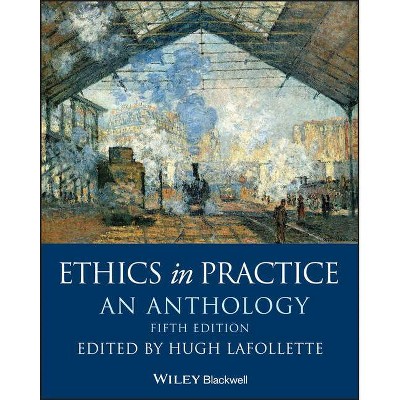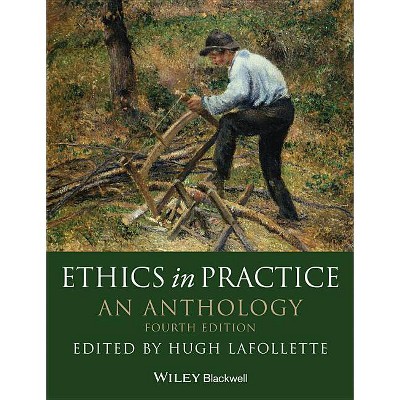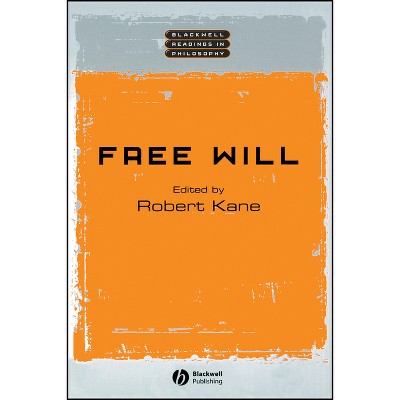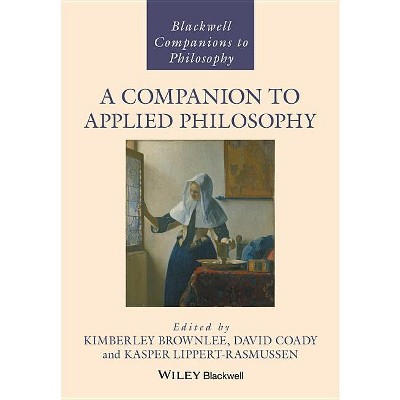Torture and the Ticking Bomb - (Blackwell Public Philosophy) by Bob Brecher (Paperback)

About this item
Highlights
- This timely and passionate book is the first to address itself to Harvard Law Professor Alan Dershowitz's controversial arguments for the limited use of interrogational torture and its legalisation.
- About the Author: Bob Brecher is Reader in Moral Philosophy at the University of Brighton, UK and Director of its Centre for Applied Philosophy, Politics and Ethics.
- 144 Pages
- Philosophy, Ethics & Moral Philosophy
- Series Name: Blackwell Public Philosophy
Description
Book Synopsis
This timely and passionate book is the first to address itself to Harvard Law Professor Alan Dershowitz's controversial arguments for the limited use of interrogational torture and its legalisation.- Argues that the respectability Dershowitz's arguments confer on the view that torture is a legitimate weapon in the war on terror needs urgently to be countered
- Takes on the advocates of torture on their own utilitarian grounds
- Timely and passionately written, in an accessible, jargon-free style
- Forms part of the provocative and timely Blackwell Public Philosophy series
From the Back Cover
Do you really think torture is acceptable in any circumstances?The controversial arguments of Harvard law professor Alan Dershowitz supporting the legalisation of torture in so-called "ticking bomb" scenarios represent the most sophisticated and visible of recent attempts to make torture an accepted weapon in the war on terror.
States and other agents engage in torture, as both sides of the debate accept. According to Bob Brecher, it is precisely because the general public are taking the "new realism" of Dershowitz and others seriously that there is a pressing need to expose the fundamental flaws in their arguments, lest the peoples of democratic societies lose their moral compass and fail to be vigilant in holding their governments properly to account.
This timely and passionate book is the first to address itself directly to the arguments for legalising the limited use of interrogational torture. Brecher confronts those arguments head-on, examining the efficacy of torture and drawing out the practical implications for policy as well as the ethical implications of these proposals for the kind of society we live in.
Review Quotes
"Brecher relentlessly deconstructs the most misleading hypothetical of our time. His lively and valuable book shows that even 'noble cause' torture is always counterproductive."
Geoffrey Robertson QC, Doughty Street Chambers
"(Dershowitz's) premise is subjected to a withering scrutiny in this brilliant deconstruction by the moral philosopher Bob Brecher. In a comprehensive critique of the 'ticking bomb' hypothesis, Brecher exposes the moral and intellectual flaws in Dershowitz's arguments and shows how easily such pragmatic rationalisations can open the door to the creation of a 'tortuous society'. It's a task that Brecher accomplishes with grace, moral passion and unswerving logic."
Red Pepper, March 2008
"Quite simply, this book is the most powerful and comprehensive challenge available to a piece of intellectual fraud having wide commerce today - that under some hypothetical situation the infliction of pain to break another's will is morally justifiable. The ticking bomb, in Brecher's analysis, is a fantasy that hardly yields grounds sufficient for the employment of interrogational torture. Here the philosopher's role towards that fantasy is quite clear: debunk it!"
Gabriel Palmer-Fernandez, Youngstown State University
"A splendid attack on the appalling idea of legalising torture."
Will Podmore
"A salutary antidote to those who would waver on the issue [of torture]...Brecher opens up the wider utilitarian implications that arise."
Planet Magazine
"Brecher ... does not reflexively dismiss the advocates of torture ... .He carefully cites the errors of their arguments, using logic, expert opinion, and moral reasoning."
PsycCritiques
About the Author
Bob Brecher is Reader in Moral Philosophy at the University of Brighton, UK and Director of its Centre for Applied Philosophy, Politics and Ethics. He is the author of two previous books, Anselm's Argument: the Logic of Divine Existence and Getting What You Want?: a Critique of Liberal Morality (1998). He has published widely in ethics and social and political philosophy and was the founding editor of the journal Res Publica.










